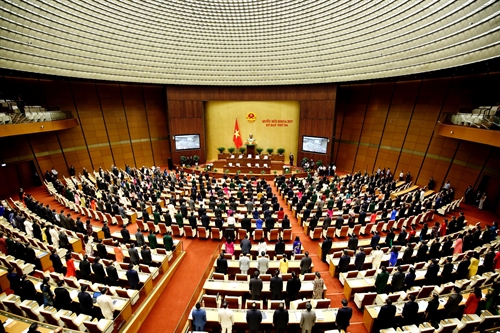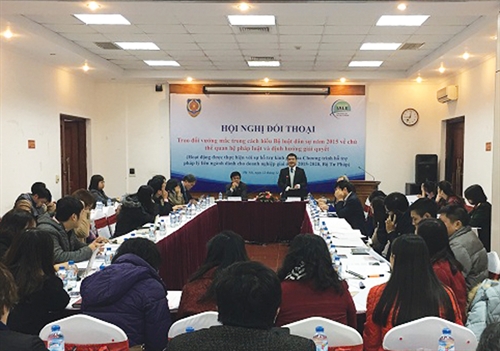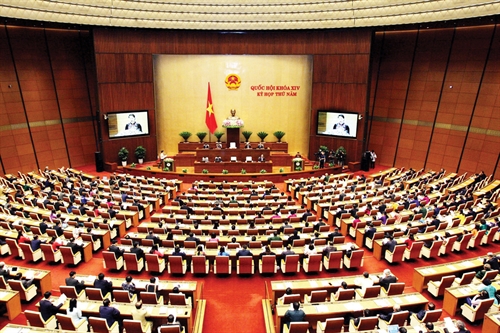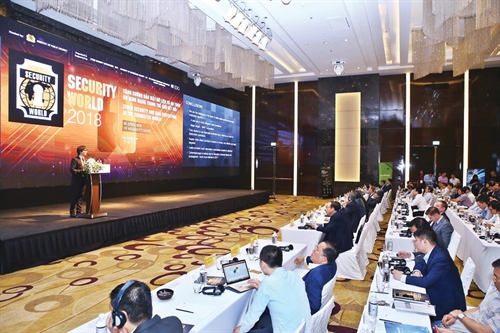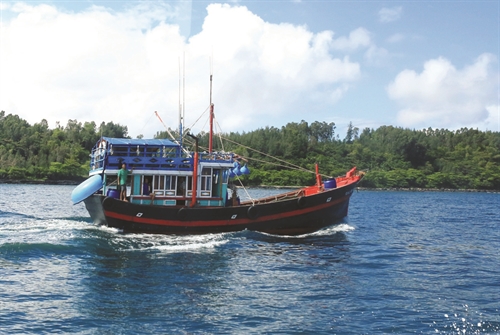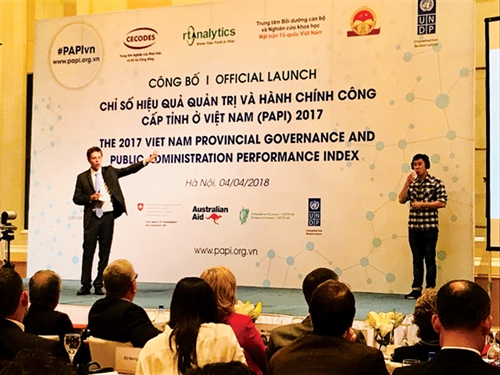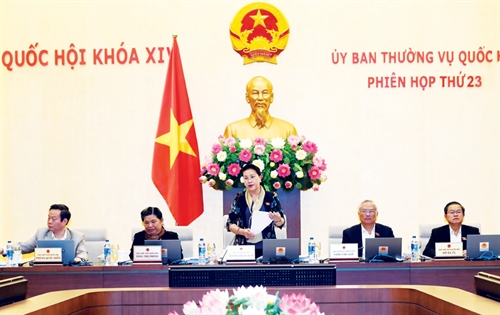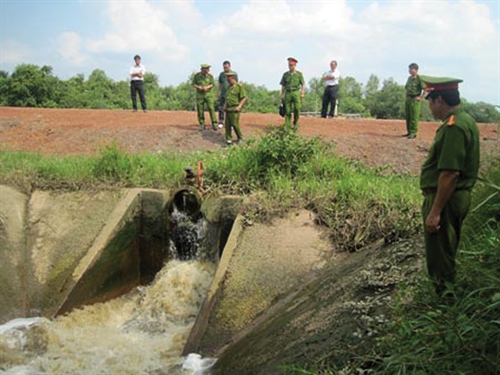After three weeks of sitting, the 14th National Assembly (NA) completed its working agenda of the fifth session, said NA Chairwoman Nguyen Thi Kim Ngan at the closing ceremony in Hanoi on June 15.
The NA voted to pass seven laws to continue the institutionalization of the 2013 Constitution, improve the legal system on economic development, human rights, and basic rights and obligations of citizens, and ensure national defense and security.
They include the laws on topography and cartography, and cyber security; amendments to four other laws concerning denunciations, competition, national defense, and physical training and sports; and revisions to the laws related to the Planning Law.
As regards the draft Law on Special Administrative-Economic Units, the top legislator said on the basis of collecting opinions from lawmakers, voters and people from all walks of life and taking into account various aspects, the legislature decided to postpone the adoption of the bill until the next session later this year to have more time for study and completion and to ensure its quality and feasibility.
At the meeting, the NA discussed and approved several resolutions, including those on the law- and ordinance-making program for 2019 and adjustments to the 2018 legislative program, and the program on the NA’s oversight activities for 2019. The legislature also resolved on the establishment of the NA’s supreme inspection delegation on the implementation of policies and laws on planning, management and use of land in urban areas from the effective date of the 2013 Land Law to the end of 2018, and the implementation of policies and laws on fire prevention and fighting during the 2014-18 period.
The legislature requested NA agencies, delegations and deputies to proactively build and implement their own oversight programs based on those resolutions, Ngan said.
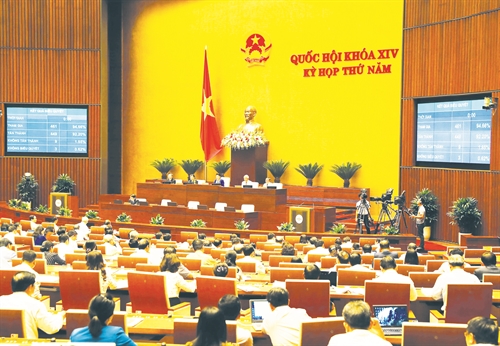 |
| NA deputies vote to pass the Resolution on the NA’s oversight program in 2019__Photo: Trong Duc/VNA |
The NA conducted question-and-answer sessions for four cabinet members: the Ministers of Transport; Natural Resources and Environment; Labor, War Invalids and Social Affairs; and Education and Training. Deputy Prime Ministers Vu Duc Dam and Vuong Dinh Hue took part to help deal with the concerns of the public.
The NA Chairwoman said the government officials provided straightforward answers and brought practical solutions to addressing the shortcomings.
The outcomes of the fifth meeting showed the NA activities have become closer to people. The legislature listened to constructive opinions from voters and people to improve the quality of adopted bills and resolutions, Ngan said.
The top legislator asked the Government to increase mass mobilization work so that the public will not be incited to break laws, and also demanded the cabinet handle violations.
The legislature also asked the Standing Committee, Ethnic Council and Committees of the NA, Government, Vietnam Fatherland Front, local authorities at all levels, Supreme People’s Court, Supreme People’s Procuracy, State Audit Office of Vietnam, and related agencies and organizations to ensure the enforcement of laws and resolutions adopted at this sitting.
Ngan said the legislature discussed and evaluated the implementation of the socio-economic development plan and the state budget in 2017 and the first months of 2018.
The decisions made will speed up putting plans in place this year, and also help implement the five-year socio-economic development plan for 2016-20.
Lawmakers approved a resolution ratifying the 2016 state budget balance, but asked the Government to tighten financial discipline and punish violators of the regulations on management and use of state budget funds.
They also called on the Government to improve the management of investment capital, public debts, and state budget overspending, as well as to ensure national financial security.
Cyber security law passed
During this session, the NA adopted the Law on Cyber Security with 423 NA deputies (accounting for nearly 87 percent of those present at the meeting) voting for the bill, while only 15 deputies voting against it and 28 others abstaining.
Expected to come into force on January 1 next year, the law requires all internet-related service providers, both foreign and domestic, to open a representative office and maintain a customer database in servers based in Vietnam in exchange for authorization to operate lawfully in the country.
The Ministry of Public Security, also the law drafter, will have the jurisdiction to examine the information network of any organization or company when a breach of national security or a threat to social order and safety is detected.
According to a report on the law released by the NA Standing Committee, it is feasible to require foreign providers like Google and Facebook to open a data center in Vietnam.
While it would increase business costs, the report said it was a “necessary regulation to meet Vietnam’s cyber security demands.”
The report said the physical presence of foreign providers in the country would help improve services for Vietnamese customers and ensure the efficient resolution of any disruption to their services.
It would also allow authorities to easily supervise the business activities of those companies and to more effectively handle any breaches to cyber security.
Sports betting gets green light
With the Law on Sports and Physical Training passed at this session, Vietnam legalizes sports betting and considers it a conditional business in the country.
Sports betting is under the strict control of state bodies and must ensure transparency, objectivity and honesty, as well as ensure the rights and obligations of involved parties.
The Government will decide on the list of sports activities in which betting is allowed and provide more detailed regulations on this business line.
Meanwhile, the law does not make swimming a compulsory subject at school, despite the fact that it was proposed in the draft law.
During earlier discussions on the draft law, NA deputies said that swimming was a necessary survival skill as Vietnam is a country of many bodies of water, plus it is facing the negative impacts of climate change. However, other N A deputies said that it was impractical to make swimming a compulsory subject because schools lacked swimming facilities and swimming teachers.
Costs for swimming lessons could burden both families and schools, especially those in disadvantaged remote areas. So, under the law, swimming would be given priority to develop. Schools and public sports centers would cooperate to promote physical training and indoor sports.
The new law also regulates that sport areas would be included in the projects for schools, residential areas, industrial parks, hi-tech parks or military camps.
Arguments about corruption in private sector
Discussing draft amendments to the anti-corruption law, which are among the eight draft laws put for debate at this meeting, many NA deputies voiced support for the bill’s effort to address corruption in the private sector, while others criticized the state anti-corruption forces’ limited manpower and the bill’s legal complexity and feasibility.
NA deputy Mai Thi Phuong Hoa from Nam Dinh province said corruption in the private sector had risen in recent years. According to a report released by the Vietnam Chamber of Commerce and Industry and the Development and Policies Research Center, corruption was among the top five factors with the most impact on the country’s business environment.
“The private sector is used to launder money gained from corruption from the public sector. An effective anti-corruption policy cannot afford to ignore the private sector,” Hoa said.
She also noted that “corruption in the private sector not only undermines domestic consumers’ trust in the local products and services but also damages international investors’ faith in the economy because of the hidden costs of doing business.”
Meanwhile, others advised caution as the top priority for the country to fight corruption in the public sector.
“The amended bill may include public companies and credit funds as they call for capital from the public but the public sector must remain our highest priority in the fight against corruption,” said NA deputy Luu Binh Nhuong from Ben Tre province.
For the State’s anti-corruption forces, having too many targets to go after may be counter-productive now that the fight against corruption in the public sector is getting more difficult.
NA deputy Nguyen Thi Thuy from Bac Kan province questioned the lack of anti-corruption regulations for private businesses.
“It will be very difficult, to say the least, for private businesses as we have no legal framework for them to follow. In the absence of a clear guideline, there will be a lot of grey areas that inspection units can take advantage of to harass businesses, an issue the Government is trying very hard to address,” she said.
Another area where the bill may get even more complex is how it will deal with businesses with foreign shareholders, which have seen a sharp rise in number in the last two decades.
Of the total 1,800 public companies and 128 credit institutions that will be included in the amended law, many are owned partially or fully by foreign partners.
“Should foreign owners be found to be dishonest in their asset declaration forms, who will be responsible for going overseas to verify the facts? Do the laws of their countries of origin even allow that?” Thuy said.-

